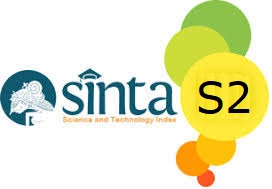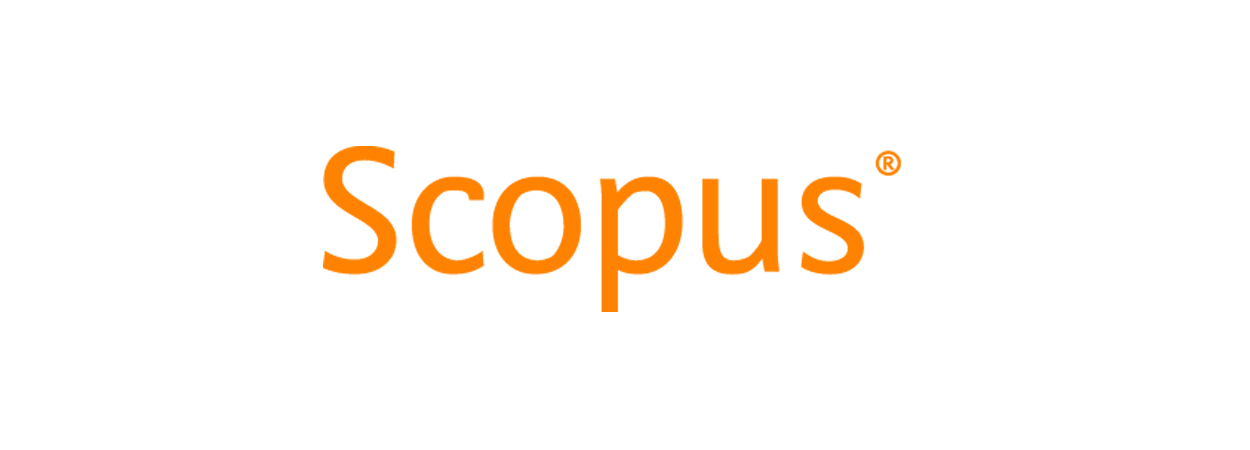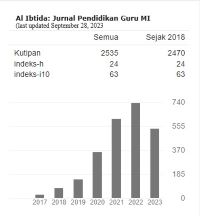Inadequate Funding of Basic Education in Nigeria: Implications for Quality and Equity in Learning Delivery
(1) Global Wealth University
(2) Global Wealth University
(*) Corresponding Author
Abstract
Abstract
Basic education forms the cornerstone of national development, yet Nigeria continues to suffer from chronic underfunding despite policy frameworks aimed at universal access. This paper adopts a systematic literature review (SLR) methodology, guided by the PRISMA (Preferred Reporting Items for Systematic Reviews and Meta-Analyses) framework, to investigate the implications of inadequate funding on the quality delivery of basic education in Nigeria. Drawing on peer-reviewed literature, policy documents, and empirical reports published between 1999 and 2024, the review sourced data from Google Scholar, JSTOR, ERIC, and ResearchGate. One thousand three hundred fifteen records were identified, with 86 studies meeting the inclusion criteria after screening and eligibility assessment. The findings highlight a consistent failure to meet the UNESCO-recommended 15–20% budgetary allocation for education, with basic education often receiving marginal and delayed disbursements. Key issues identified include dilapidated infrastructure, a shortage of qualified teachers, inadequate teaching materials, and weak financial accountability at the state level—aggravated by the conditional requirement for counterpart funding to access federal grants. The review also reveals that political apathy, poor fiscal planning, and mismanagement undermine efforts to improve basic education outcomes. The paper recommends a stronger policy enforcement mechanism, transparent fund allocation, and integrating alternative funding strategies such as public-private partnerships and community-based financing to reverse these trends. This review contributes valuable insights for policymakers and education stakeholders committed to achieving equitable and quality basic education in Nigeria by 2030.
Keywords: basic education, educational underfunding, quality education delivery, nigeria education policy.
Abstrak
Pendidikan dasar merupakan landasan pembangunan nasional, namun Nigeria terus mengalami kekurangan dana kronis meskipun kerangka kebijakan ditujukan untuk akses universal. Penelitian ini mengadopsi metodologi tinjauan pustaka sistematis (SLR), yang dipandu oleh kerangka PRISMA (Preferred Reporting Items for Systematic Reviews and Meta-Analyses), untuk menyelidiki implikasi dari pendanaan yang tidak memadai pada kualitas penyampaian pendidikan dasar di Nigeria. Mengacu pada literatur yang ditinjau sejawat, dokumen kebijakan, dan laporan empiris yang diterbitkan antara tahun 1999 dan 2024, tinjauan tersebut mengambil data dari Google Scholar, JSTOR, ERIC, dan ResearchGate. Seribu tiga ratus lima belas catatan diidentifikasi, dengan 86 studi memenuhi kriteria inklusi setelah penyaringan dan penilaian kelayakan. Temuan tersebut menyoroti kegagalan yang konsisten untuk memenuhi alokasi anggaran 15–20% yang direkomendasikan UNESCO untuk pendidikan, dengan pendidikan dasar sering kali menerima pencairan yang marjinal dan tertunda. Masalah utama yang diidentifikasi meliputi infrastruktur yang rusak, kekurangan guru yang berkualifikasi, materi pengajaran yang tidak memadai, dan akuntabilitas keuangan yang lemah di tingkat negara bagian—diperburuk oleh persyaratan bersyarat untuk pendanaan pendamping guna mengakses hibah federal. Tinjauan tersebut juga mengungkap bahwa apatisme politik, perencanaan fiskal yang buruk, dan salah urus melemahkan upaya untuk meningkatkan hasil pendidikan dasar. Penelitian ini merekomendasikan mekanisme penegakan kebijakan yang lebih kuat, alokasi dana yang transparan, dan mengintegrasikan strategi pendanaan alternatif seperti kemitraan publik-swasta dan pembiayaan berbasis masyarakat untuk membalikkan tren ini. Tinjauan ini memberikan wawasan berharga bagi para pembuat kebijakan dan pemangku kepentingan pendidikan yang berkomitmen untuk mencapai pendidikan dasar yang adil dan berkualitas di Nigeria pada tahun 2030.
Kata kunci: pendidikan dasar, kurangnya dana pendidikan, penyediaan pendidikan bermutu, kebijakan pendidikan Nigeria.
Full Text:
PDFReferences
Abbas, A. I., & Ogiri, I. A. (2017). Political economy of financing education at sub-national level in Nigeria: Trends, achievements, gaps and challenges. International Journal of Development and Sustainability, 6(12), 2145–2162.
Afuberoh, D., & Okoye, E. (2014). The impact of taxation on revenue generation in Nigeria: A study of the Federal Capital Territory and selected states. International journal of public administration and management research, 2(2), 22-47.
Akanbi, G. O., & Jekayinfa, A. A. (2019). Education and emancipation, educational policies and «de-emancipation»: A history of the Nigerian education system from 1914 to 2014. Espacio, Tiempo y Educación, 6(2), 177-196.
Alao, O. O., & Jagboro, G. O. (2017). Assessment of causative factors for project abandonment in Nigerian public tertiary educational institutions. International Journal of Building Pathology and Adaptation, 35(1), 41-62.
Alexander, K., Salmon, R. G., & Alexander, F. K. (2014). Financing public schools: Theory, policy, and practice. Routledge.
Amadi, U. V., & Nwogu, U. J. (2023). The impact of funding on educational development in Nigeria. Journal of Education in Developing Areas, 31(3), 61–82.
Asiyai, R. I. (2013). Challenges of quality in higher education in Nigeria in the 21st century. International Journal of Educational Planning & Administration, 3(2), 159-172.
Ayoko, V. O., Peter, T., & Jegede, D. O. (2023). Inadequacy of infrastructural facilities in public universities in Nigeria: Causes, effects and solutions. International Journal on Integrated Education, 6(3), 36.
Barira, U. M. (2018). Implementation of Universal Basic Education and completion rates of pupils in primary schools in Kaduna North, Kaduna State, Nigeria (Doctoral dissertation, Kampala International University, College of Education, Open, Distance and E-Learning).
Belay, T., Chugunov, D., Dahal, M., De Simone, M.E., Gafar, A., Isser, D., Nweje, I.J., Okunola, O.O., Parajuli, D. & Pradhan, E. (2024). Human Capital Public Expenditure and Institutional Review-An analysis of financing and governance constraints for the delivery of basic education and primary health care in Nigeria. World Bank.
BenDavid-Hadar, I. (2018). Funding education: Developing a method of allocation for improvement. International Journal of Educational Management, 32(1), 2-26.
Berebon, C. (2025). The Nexus between Security, Human Development, and Economic Stability: Addressing Insecurity as a Threat to National Growth in Nigeria. Advances in Law, Pedagogy, and Multidisciplinary Humanities, 3(1), 28–47.
Birabil, S. T., & Ogeh, O. M. (2020). Education in Nigeria: challenges and way forward. International Journal of Academic Research and Reflection, 8(1), 42–48.
Boarini, R., Causa, O., Fleurbaey, M., Grimalda, G., & Woolard, I. (2018). Reducing inequalities and strengthening social cohesion through inclusive growth: a roadmap for action. Economics, 12(1), 20180063.
Edwards, D. B., Okitsu, T., Da Costa, R., & Kitamura, Y. (2017). Regaining legitimacy in the context of global governance? UNESCO, Education for All coordination and the Global Monitoring Report. International Review of Education, 63, 403-416.
Eze, B. E. (2024). Poor Funding Of Public Secondary Schools in Nigeria: Implications For National Development. Journal of Economics and Environmental Education (JEEE), 8(1), 76–90.
Hassan, A. O., Sulayman, S., Jafaru, Y., & Enagi, F. A. (2024). Analysis of The Nexus Between National Security And Socio-Economic Development. African Journal of Social and Behavioural Sciences, 14(7).
Ifediora, C. O. (2024). Effects of educational scholarship schemes designed to incentivise Nigerian high school students towards high test scores (Doctoral dissertation, University of Southern Queensland).
Ilesanmi, A., & Owoyemi, O. (2015). Investing In Human Capital To Promote Capacity Development Through Training And Development: Is Nigeria On The Right Track? Nigerian Journal of Management Studies, 12(2/2), 167-187.
Lasisi, O. J. (2021). Budgeting Process and Its Relevance to the Educational System in Nigeria. Benin Journal of Educational Studies, 27(1), 139-150.
Lott, A. (2025). Factors Affecting the Educational Status of Children in Nigeria (Doctoral dissertation, Walden University).
Mestry, R., Plessis, P. D., & Shonubi, O. K. (2017). State funding in selected African countries: Implications for access to public education. In Re-thinking Postcolonial Education in Sub-Saharan Africa in the 21st Century: Post-Millennium Development Goals (pp. 161–181). Rotterdam: Sense Publishers.
Mncube, D. (2023). Analysis of the impact of poor infrastructure provision on the quality of education in rural schools. Axiom Academic Publishers, 1, 71–98.
Nwali, C. R., Maseng, J. O., Yemisi, O., & Onu, C. S. (2024). National Financial Intelligence Unit (NFIU) and Local Government Financial Freedom in Nigeria: A Critical Challenge. Gender and Behaviour, 22(1), 22583-22599.
Nwoke, C., Oyiga, S., & Cochrane, L. (2024). Assessing the phenomenon of out‐of‐school children in Nigeria: Issues, gaps and recommendations. Review of Education, 12(3), e70011.
Nwokeocha, S. M. O. (2023). Academic staff working conditions, organisational commitment and performance of Nigerian universities (Doctoral dissertation, Anglia Ruskin Research Online (ARRO)).
Obiakor, M. I. (2023). Perceived Impact of Poor Funding of Education on Quality Control in Government Secondary Schools in Enugu North Local Government Area of Enugu State. SK International Research and Development Journals, 1(1).
Odigwe, F. N., & Owan, V. J. (2019). Trend analysis of the Nigerian budgetary allocation to the education sector from 2009–2018 with reference to UNESCO’s 26% Benchmark.
Ogbonnaya, C. N., & Abanobi, C. N. (2023). Perception of Stakeholders in the Financing of Public Secondary Schools in Owerri Municipal Council Area of Imo State, Nigeria. Nigerian Journal of Education Administration and Planning (NJEAP), 23(3).
Ogunode, N. J., Johnson, A. G., & Olatunde-Aiyedun, T. G. (2022). Education crisis in Nigeria and way forward. In Kresna Social Science and Humanities Research Proceedings of the International Conference on Sustainable Development: Problems, Analysis and Prospects (pp. 33-47).
Ohaegbulem, E. U., & Chijioke, S. C. (2023). On Nigeria’s Budgetary Allocations to The Education Sector (1960-2023) In View of UNESCO’s Benchmarks. International Journal of Mathematics and Statistics Studies, 11(4), 32-44.
Oke, T. I., & Bukar, I. B. (2018). Exploring alternative sources of funding universal basic education for sustainable development in Nigeria. NIU Journal of Humanities, 2(2), 31-38.
Okeke, M. I., & Eme, O. I. (2015). Cost of governance and its implications on Nigeria’s economy. Arabian Journal of Business and Management Review (Kuwait Chapter), 4(5), 44-61.
Omede, J. (2020). Strategies for coping with behavioural and environmental challenges of teaching large classes in public universities in Nigeria. Journal of the Nigerian Council of Educational Psychologists, 11(1).
Owoeye, J. S., & Olatunde Yara, P. (2011). School facilities and academic achievement of secondary school agricultural science in Ekiti State, Nigeria. Asian Social Science, 7(7), 64-74.
Salahu, M. O. (2020). Assessment of Educational Policy in Nigeria: A Study of State and Non-state Provision of Basic Education in Kwara State (2009-2019) (Doctoral dissertation, Kwara State University (Nigeria)).
Sysoieva, S. (2022). Trends in digital adaptation of schools during the COVID-19 pandemic. Information Technologies and Learning Tools, 91(5), 21–35.
Umeozor, J. U. (2023). Rebuilding University Education in Nigeria: The Way Forward. In Global Journal of Academic Research Forum (pp. 1-14).
Universal Basic Education Commission (2022). Annual Report of the Universal Basic Education Commission. Abuja: UBEC Press.
Universal Basic Education Commission (2023). Unaccessed Intervention Fund Report. Abuja: UBEC.
Universal Basic Education Commission: Act. (2004). Universal Basic Education Act. Federal Government of Nigeria.
Van Hiep, N. (2021). High-quality human resources development. Journal of University of Shanghai for Science and Technology, 23(1), 3818–3830.
DOI: 10.24235/al.ibtida.snj.v12i1.20044
Article Metrics
Abstract view : 47 timesPDF - 2 times
Refbacks
- There are currently no refbacks.
Copyright (c) 2025 Al Ibtida: Jurnal Pendidikan Guru MI

This work is licensed under a Creative Commons Attribution 4.0 International License.
Al Ibtida: Jurnal Pendidikan Guru MI Indexed by:
Editorial Office:
FITK Building, 5th Floor, Department of Madrasah Ibtidaiyah Teacher Education, Faculty of Tarbiyah and Teacher Training, UIN Siber Syekh Nurjati Cirebon. Perjuangan Street of Sunyaragi, Cirebon City, West Java, Indonesia 45132. Phone. 0231-481264, Fax. 0231-489926, Email: alibtida@syekhnurjati.ac.id
Al Ibtida: Jurnal Pendidikan Guru MI is licensed under a Creative Commons Attribution 4.0 International License.



















